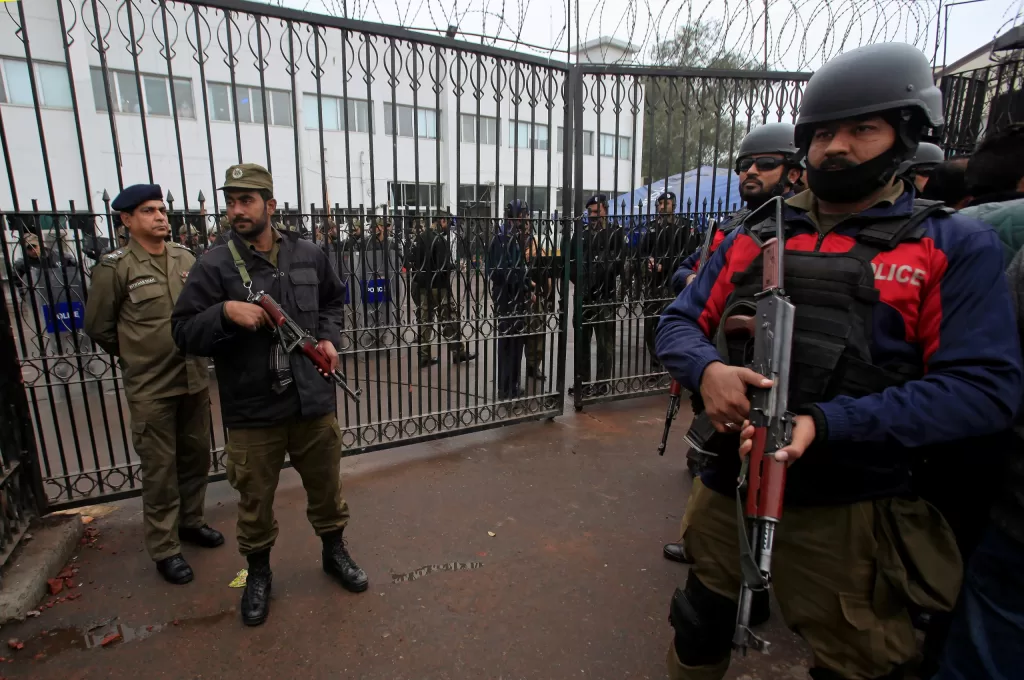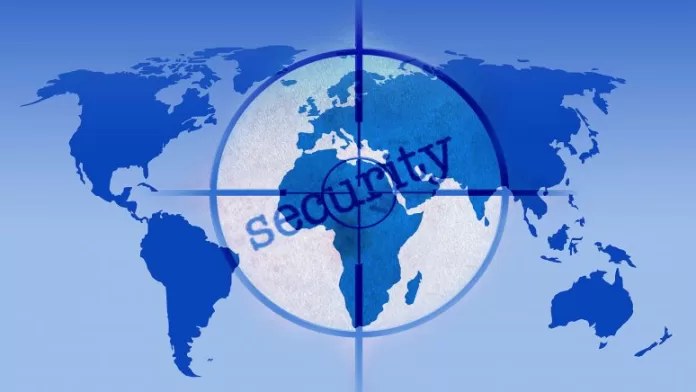In the traditional sense security is considered as freedom from risk or danger of destruction and/or annihilation, national security being freedom of the national state from danger of destruction by war, physical violence aggression, etc from outside. Having a monopoly of power the nation state is responsible for defending its citizens deprived of the power to defend themselves against aggression. Basic in today’s political and economic situation, International security combined with the notion of globalization are the set of measures performed by countries and various international organizations such as the UN for providing mutual safety in world politics, these involve military actions, diplomatic treaties and agreements. It covers a variety of interconnected issues impacting on survival in the world, ranging from traditional military power, the causes and consequences of war between states, economic strength, to ethnic, religious and ideological conflicts, trade and economic conflicts, energy supplies, science and technology, food, as well as threats to human security and the stability of states from environmental degradation, infectious diseases, climate change and the activities of non-state actors.
States are deemed to be rational entities, national interests and policy driven by the desire for absolute power. Security was seen as protection from invasion; executed during proxy conflicts using technical and military capabilities. The traditional concept of security focuses on external threat, but progressing globalization have made borders increasingly irrelevant, reducing the probability of external aggression while threats to security arise from internal sources such as economic security (food, water, job), threats from shifting identities in the wake of globalization in connection with religious or ethnic strife; radicalization and terrorism are recent additions.
The traditional state-centric notion of security has been challenged by more holistic approaches to security over the last many years. that include cooperative, comprehensive and collective measures aimed to ensure security for the individual and, as a result, for the state. Threat perceptions include rapid depletion of resources, increasing population, poverty and many other environmental issues, with problems of ethnicity, economic-related and social inequalities. Much more intimidating than the traditional ones, non-traditional threats require the national leadership to look not only outwards to cultivate international cooperation, but inwards, to execute internal socio-economic and political reforms. Mely Caballero-Anthony describes these threats as “challenges to the survival and well-being of peoples and states that arise primarily out of non-military sources, such as climate change, cross-border environmental degradation and resource depletion, infectious diseases, natural disasters, irregular migration, food shortages, people smuggling, drug trafficking, and other forms of transnational crime.”
The term ‘societal security’ designates threats to society and refers to the robustness of a society to coping with different accidents and crises. Not connected to specific threats or scenarios, it encompasses all possible strains and hazards that a society could face. According to World Economic Forum’s (WEF) GLOBAL RISKS 2012 report unsustainable population growth poses the most significant societal risk to the world over the next ten years. A survey of 469 experts and industry leaders evaluated 10 long-term risks, a backlash against globalization, a food shortage crisis, ineffective drug policies, the mismanagement of population ageing, rising rates of chronic disease, rising religious fanaticism, unmanaged migration, unsustainable population growth, vulnerability to pandemics and water supply crises. The prime responsibility of the State, societal security underscores national cohesion and identification with the state, the resultant radicalization and extremism results in law and order situations, rioting, rise of criminal gangs and gang wars due to money-laundering and easy availability of weapons because of the nexus between corruption, organized crime and terrorism.

The five broad branches of non-traditional security are, viz (1) International Terrorism, (2) Trans-national Organized Crime, (3) Environmental Security, (4) Energy Security, and (5) Human Security. Terrorism is the calculated use of violence (or the threat of violence) against civilians in order to attain goals that are political or religious or ideological in nature; this is done through intimidation or coercion or instilling fear. International terrorism is described as terrorism practiced in a foreign country by terrorists who are not native to that country. Transnational organized crime is co-coordinated across national borders involving groups or networks of individuals working in more than one country to plan and execute illegal business ventures, utilizing systematic violence and corruption for money laundering; human smuggling; cybercrime; and trafficking of humans, drugs, weapons, endangered species, body parts, or nuclear material. This growth in transnational illegal activities is largely because of increasing scope of legitimate business and the ease with which it is conducted. Significant technological advances most affecting the growth of transnational crime include the rise of commercial airline travel, telecommunications (including telephone, fax and computer networks) and the use of computers in business.
The environment is the most transnational of transnational issues, and its security is an important dimension of peace, national security, and human rights that is just now being understood. Broadly defined, environmental security affects humankind and its institutions and organizations anywhere and at any time. Over the next 100 years, one third of current global land cover will be transformed, with the world facing increasingly hard choices among consumption, ecosystem services, restoration, and conservation and management. There are growing indications that environmental security is increasingly an underlying cause of instability, conflict and unrest, central to national security, comprising natural resource base, the social fabric of the state, and the economic engine for local and regional stability.
Energy Security co-relates the requirements of national security with the availability of natural resources for energy consumption. Threats to energy security include the manipulation of energy supplies, the competition over energy sources, attacks on supply infrastructure, as well as accidents, natural disasters, rising terrorism, and dominant countries reliance to the foreign oil supply. Foreign oil supplies are vulnerable to unnatural disruptions from in-state conflict, exporters’ interests, and non-state actors targeting the supply and transportation of oil resources. The political and economic instability caused by war or other factors can also prevent the proper functioning of the energy industry in a supplier country.
The concerns and fears are (though not limited to), viz (1) Oil and other fossil fuel depletion (peak oil, etc), (2) reliance on foreign sources of energy, (3) geopolitics (such as supporting dictatorships, rising terrorism, “stability” of nations that supply energy) (4) energy needs of poorer countries, and demands from advancing developing countries such as China and India (5) economic efficiency versus population growth (6) environmental issues, in particular climate change and (7) renewables and other alternative energy sources.
The new global pressures threaten the well being and resilience of both human society and the natural environment, including population growth, increased demand for energy and materials, and competition for access to land, water, minerals, and other vital natural resources. The resulting impacts include changes in global climate and degradation of clean air and water, soil, forests, and wetlands, all of which have the potential to compromise energy security, food security, supply chain security, and other domestic and international concerns. As Mahbubal Haq stated in the UNDP Report on Human Development 1990, what is required is “freedom from want” and “freedom for fear”. (Extracts from a talk on “International Security Issues” at the National Defence University (NDU) Islamabad on Sep 3, 2012).




